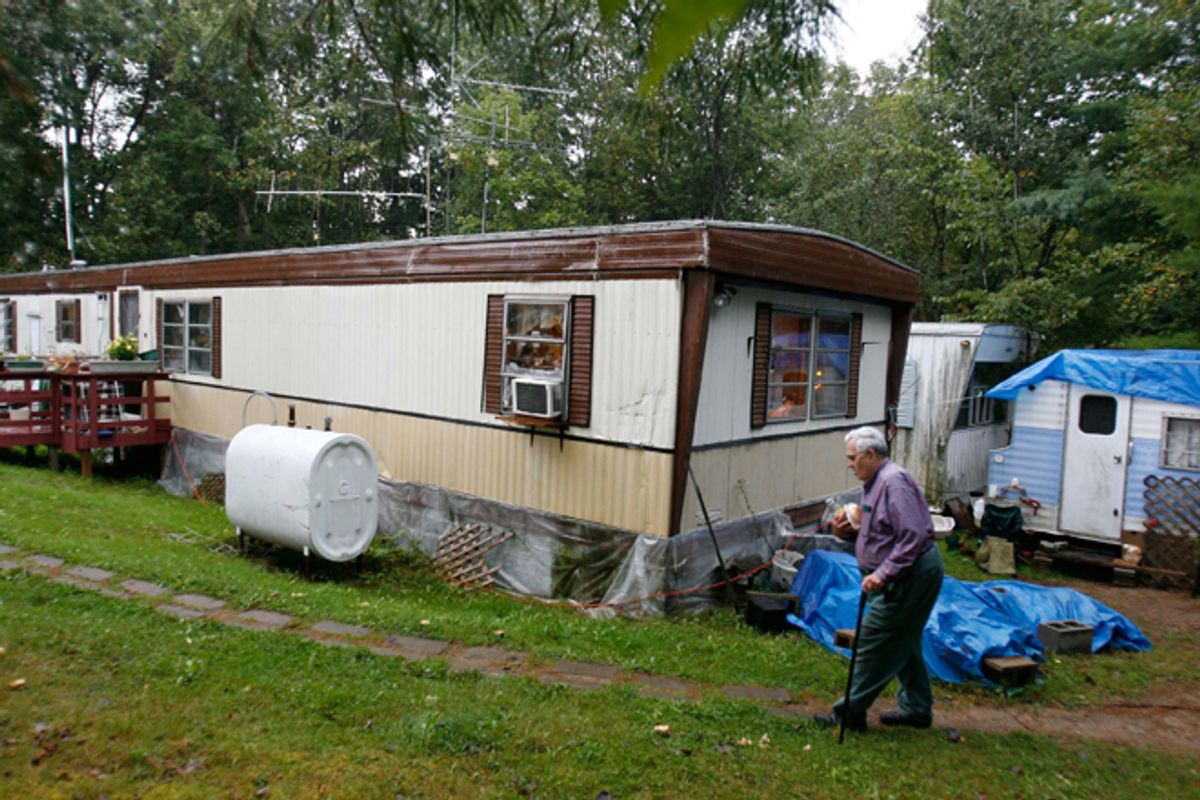 The Census Bureau has reported that 15% of Americans live in poverty. A shocking figure. But it's actually much worse. Inequality is spreading like a shadowy disease through our country, infecting more and more households, and leaving a shrinking number of financially secure families to maintain the charade of prosperity.
The Census Bureau has reported that 15% of Americans live in poverty. A shocking figure. But it's actually much worse. Inequality is spreading like a shadowy disease through our country, infecting more and more households, and leaving a shrinking number of financially secure families to maintain the charade of prosperity.
1. Almost half of Americans had NO assets in 2009
Analysis of Economic Policy Institute data shows that Mitt Romney's famous 47 percent, the alleged 'takers,' have taken nothing. Their debt exceeded their assets in 2009.
2. It's Even Worse 3 Years Later
Since the recession, the disparities have continued to grow. An OECD report states that "inequality has increased by more over the past three years to the end of 2010 than in the previous twelve," with the U.S. experiencing one of the widest gaps among OECD countries. The 30-year decline in wages has worsened since the recession, as low-wage jobs have replaced formerly secure middle-income positions.
3. Based on wage figures, half of Americans are in or near poverty.
The IRS reports that the highest wage in the bottom half of earners is about $34,000. To be eligible for food assistance, a family can earn up to 130% of the federal poverty line, or about $30,000 for a family of four.
Even the Census Bureau recognizes that its own figures under-represent the number of people in poverty. Its Supplemental Poverty Measure increases, by 50%, the number of Americans who earn between one-half and two times the poverty threshold.
4. Based on household expense totals, poverty is creeping into the top half of America.
A family in the top half, making $60,000 per year, will have their income reduced by a total tax bill of about $15,000 ($3,000 for federal income tax and $12,000 for payroll, state, and local taxes. The Bureau of Labor Statistics and the Census Bureau agree that food, housing, and transportation expenses will deduct another $30,000, and that total household expenditures will be about $50,000. That leaves nothing.
Nothing, that is, except debt. The median debt level rose to $75,600 in 2009, while the median family net worth, according to the Federal Reserve, dropped from $126,400 in 2007 to $77,300 in 2010.
5. Putting it in Perspective
Inequality is at its ugliest for the hungriest people. While food support was being targeted for cuts, just 20 rich Americans made as much from their 2012 investments as the entire 2012 SNAP (food assistance) budget, which serves 47 million people.
And as Congress continues to cut life-sustaining programs, its members should note that their 400 friends on the Forbes list made more from their stock market gains last year than the total amount of the food, housing, and education budgets combined.
Arguments about poverty won't end. Neither should our efforts to uncover the awful truth.

Shares